Diversion: Disney’s California Avenger
Before we continue our tour around my “reimagined” California Adventure, we need to make a quick side trip to our first official Diversion.
When we started this tour, I set out the idea that “my” version of this park would key off of California Adventure’s 2012 reimagining; basically, that my built-out version would answer the question, “What if California Adventure kept on the track laid out in 2012?” But if I wanted my redesign of this park to have any semblance of possibility to it, I couldn’t ignore a later addition to the park: super heroes.
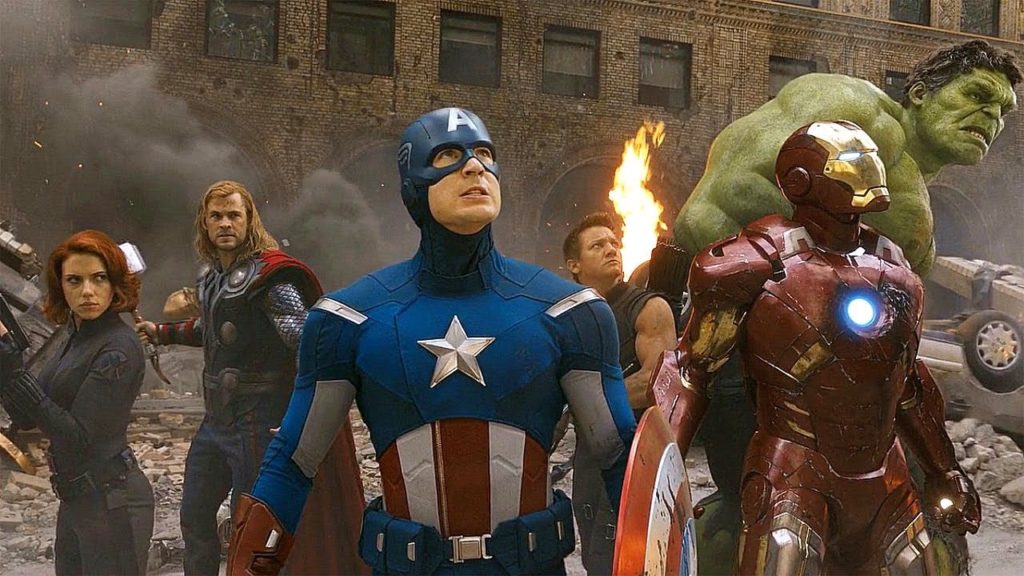
When Disney purchased Marvel Entertainment in 2009, the “Marvel Cinematic Universe” was barely a twinkle in Marvel Studios’ chief Kevin Feige’s eye. With just one film – 2008’s Iron Man – released, even Disney couldn’t have foreseen that the “MCU” would generate an endless stream of interconnected films (nearly 40 including those officially in production) the envy of the entire entertainment industry, averaging nearly a billion dollars each.
Yes, in what was likely to attempt to just acquire a merchandisable equivalent to the Disney Princess franchise in the hard-to-win “boys aged 5 – 11” market, Disney accidentally shaped one of the defining and highest-earning media franchises of all time (as of early 2023, over $41 billion, surpassing the Wizarding World not just in apples-to-oranges box office revenue, but in apples-to-apples merchandising and home entertainment income).
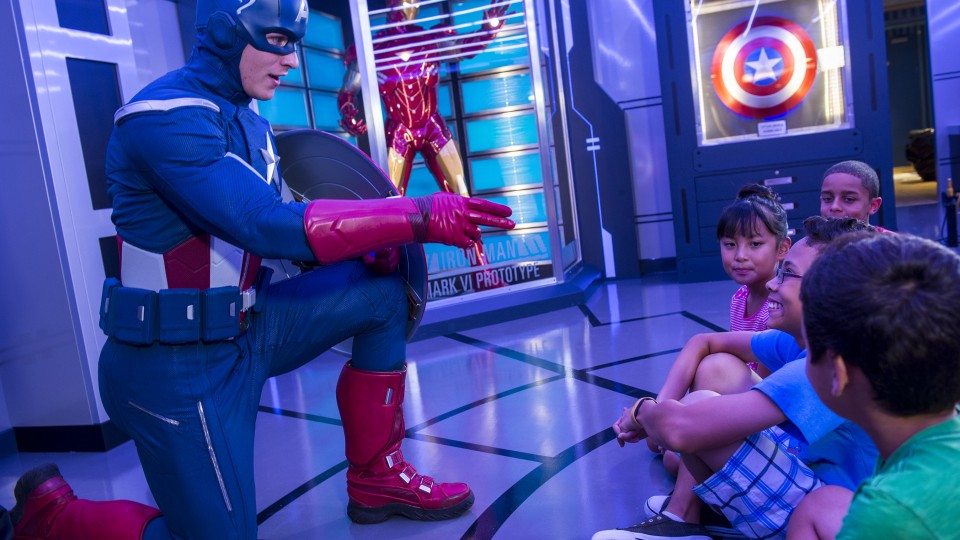
So it’s not really surprising that Disney would incorporate Marvel superheroes into Disney Parks. What has been surprising is the way in which its happened – painfully slowly, and with middling ambition. Partly, it must be because of the Custody War over Marvel heroes that leaves Disney unable to use most of the thousands of characters it acquired in its flagship Walt Disney World. Still, the fact that the multi-billion dollar Marvel took so long to rollout in Disney Parks – and almost always took the form of meet-and-greets and reskins of existing rides – has been unusual.
The trend continued with the way in which the heroes finally made definitive landfall at Disneyland. Minds were sufficiently boggled when, in 2016, Disney announced that the Lost Legend: The Twilight Zone Tower of Terror at California Adventure would close to make way for the ragtag, irreverent, intergalactic, rock ‘n’ roll Marvel superhero team, the Guardians of the Galaxy.

In the real world, 2017’s Guardians of the Galaxy – Mission: BREAKOUT! is one of countless post-2012, “DCA 3.0” character injections into the park (and frankly, one of the more successful ones). And like the rest of its post-2012 ilk, it certainly comes at the expense of all the time, effort, and money spent on the park as part of “DCA 2.0.” The idea of grafting a distinctly-Californian E-Ticket in pipes and satellite dishes to turn it into a sci-fi “warehouse prison power plant” looming over Buena Vista Street was a “wtf” moment, to be sure.
As if to quell unrest, the Disney Parks Blog hinted at the time that a larger Marvel presence was destined for the park, and that Mission: BREAKOUT! would make more sense in the context of an officially-unannounced-but-y’know-definitely-coming Marvel land.
Given the ride’s location in the park, it wasn’t a surprise when insiders reported that the plan was to level all of Hollywood Land and rebuild it as a modern Marvel cityscape. Killing several birds with one stone, replacing Hollywood Land with Marvel would not just introduce the wildly successful franchise to the only U.S. resort where it’s allowed, but would solve the “Hollywood Land” problem, too. And to sweeten the deal, Marvel would also benefit from some infrastructure shuffling around the parks…
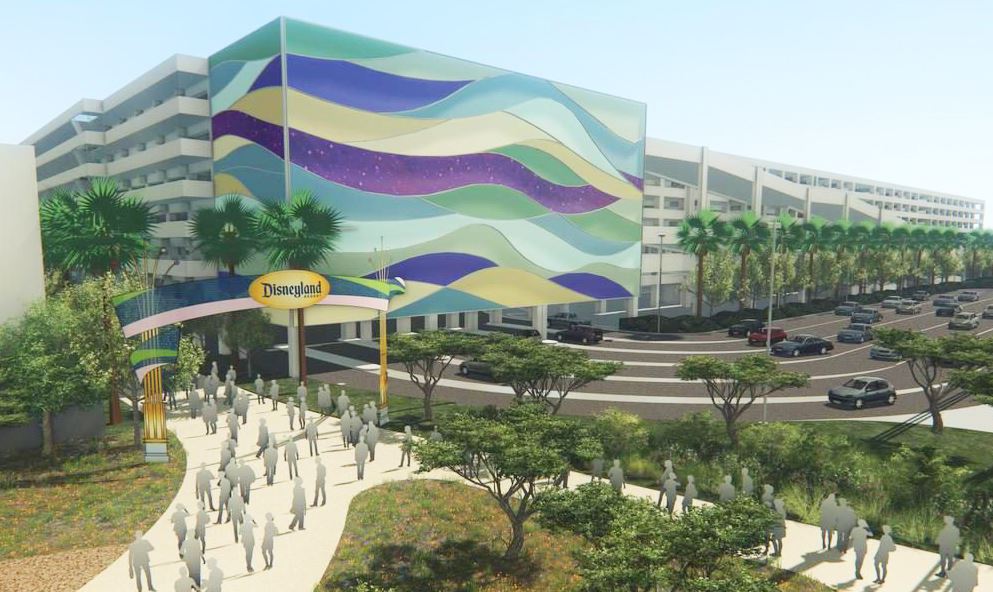
After all, in August 2016, Disney officially announced a radical reinvention of the Disneyland Resort’s transportation infrastructure: the “Eastern Gateway” project. Centered on a massive new parking structure (meant to balance the 10,000-space Mickey & Friends structure on the resort’s west side), the Eastern Gateway would utilize property owned and acquired by Disney off of the resort’s core campus to build a new entry experience for guests arriving via car, by bus, or on foot.
Regardless of their method of arrival, guests entering the resort via the Eastern Gateway would pass through security in a new off-site plaza. They’d then rise along a connecting corridor wedged between hotels (Disney bought and intended to demolish the Carousel Inn for just this purpose), finally crossing over Harbor Blvd. via a new pedestrian bridge that would then descend to the Esplanade between theme parks.
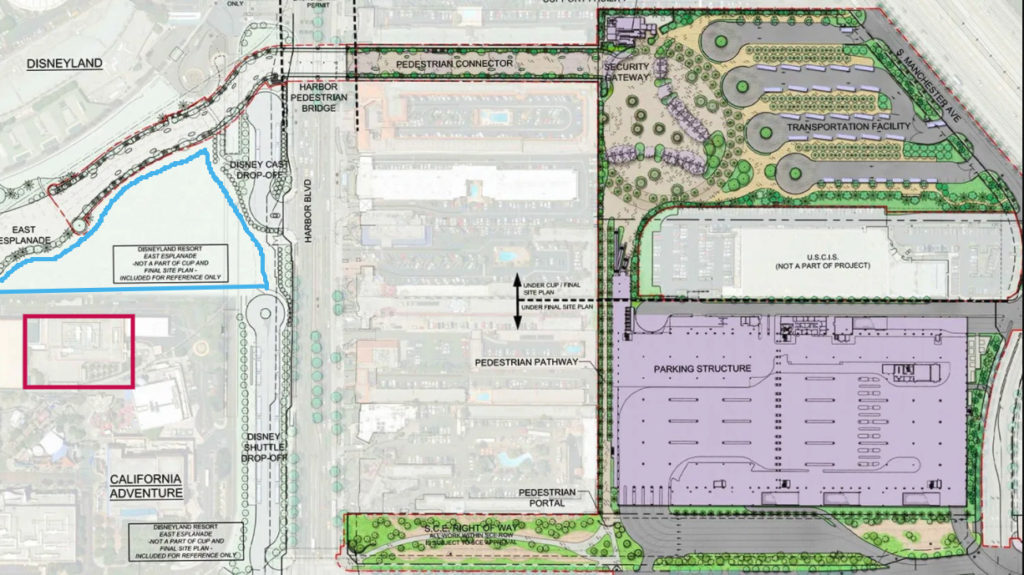
Importantly for Imagineering, the Eastern Gateway would take the resort’s existing bus drop-off and pick-up loops – outlined in blue above, wedged between Tomorrowland and Hollywood Land – and relocate them to this new, off-site entry plaza. In so doing, the existing bus loops would become land available to the parks, and specifically, to Disney California Adventure’s Hollywood Land… or whatever Marvel project replaced it.
Aha! It all made sense. Marvel could replace the entirety of Hollywood Land and make use of the unthinkable, once-in-a-generation expansion acreage made available by the Eastern Gateway, giving Disney’s blockbuster franchise a proportional space in California Adventure.
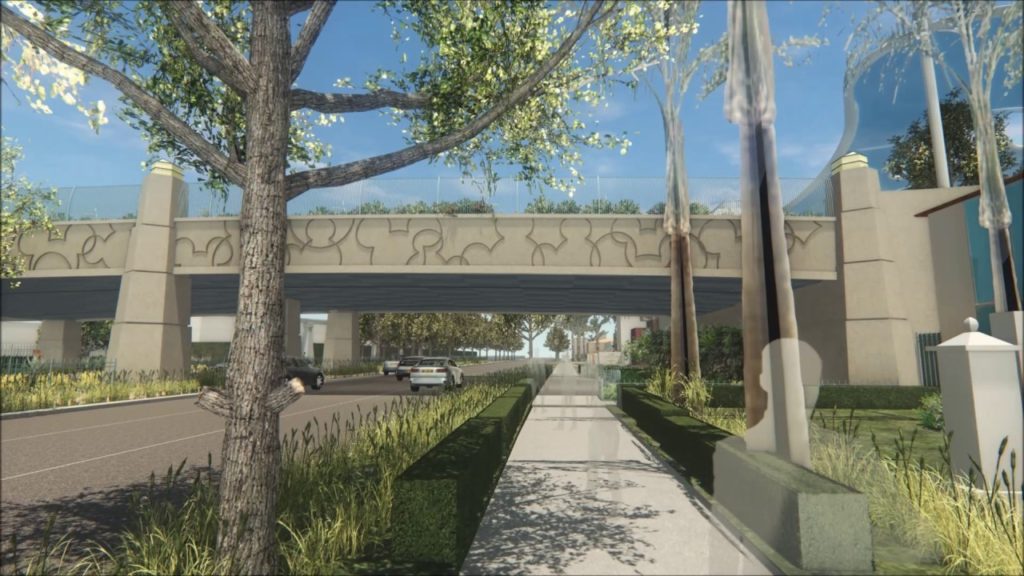
Of course, a problem emerged. By relocating the security zone to encompass this new Eastern Gateway, Disney would unceremoniously alter access to the resort for guests of hotels along Harbor Blvd. After decades and decades of “off-site” guests on Harbor Blvd. accessing the resort by simply crossing a crosswalk, the Eastern Gateway would cut off ground-level access. Follow a pedestrian’s journey on the plans above, seeing as they’d be routed a block south of the existing crosswalk, a half-block east (away from the parks), then a block north again via a none-too-friendly sidewalk wedged between hotels and the new looming parking structure.
Naturally, generations-long Harbor hoteliers balked at Disney’s self-serving proposal to turn 5-minute crosswalk commutes into 25-minute roundabout hikes seemingly designed to make weary guests wish they’d paid for Disney’s premium-priced lodging. Combined with a city council unfriendly to Disney at the time, plans for the Eastern Gateway were eventually cancelled. (The “DisneylandForward” initiative of the 2020s sought, in part, to give Disney zoning approval to revive a modified Eastern Gateway.)
Of course, following the line of cascading dominoes back to its origin, Disney had already turned Tower of Terror into a Guardians of the Galaxy ride, and now didn’t have the infrastructure to support the Marvel land it has expected to build around it. Oops! A Marvel land needed to happen, and surely it needed to be adjacent to Mission: BREAKOUT… But if not Hollywood Land, then what?
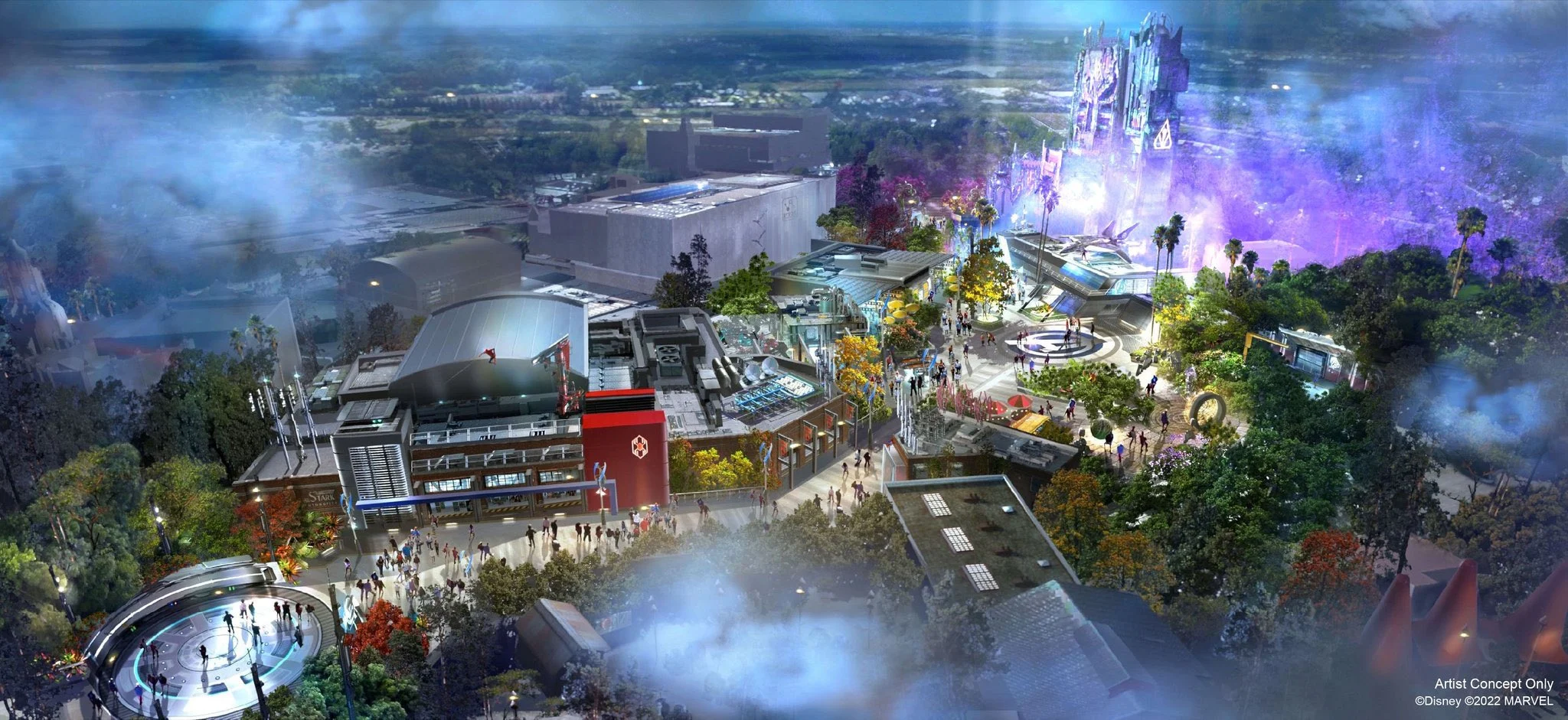
When Avengers Campus finally came online in 2020 2021, it was relegated to the much smaller, narrower parcel of land behind Hollywood Land that had once been “a bug’s land.” The result is that Avengers Campus is six acres – half as large as the park’s still-headlining Cars Land – and generally, not nearly as ambitious as fans had hoped. (Made all the worse by having its Rise-of-the-Resistance-caliber “U-Ticket” Avengers ride delayed due to COVID, then swapped for a new and less ambitious concept altogether, just in time for Marvel to lose its foothold at the box office. Oops again.)
All of that may seem like accessory information, but knowing the real story behind the placement, purpose, and potential of Avengers Campus will help make sense of my choices for the land in each regard…
Avengers Campus
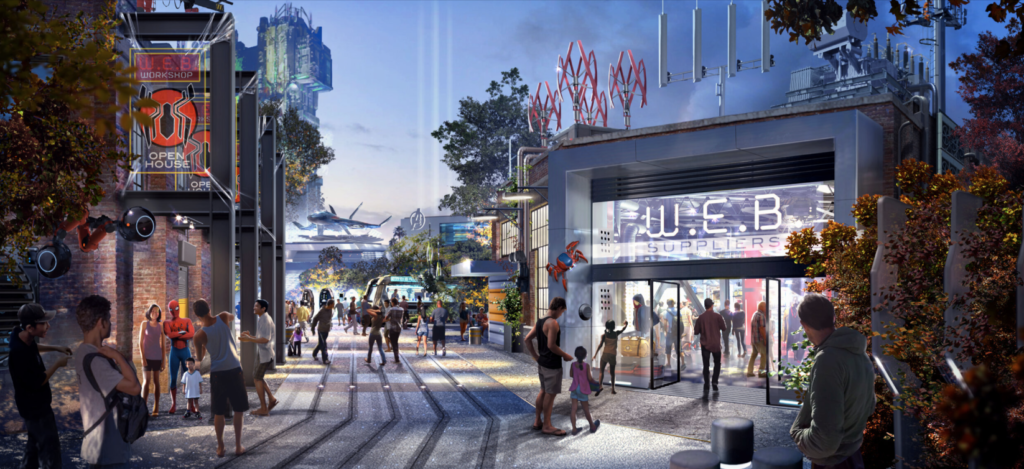
First, my feelings: I started liking Avengers Campus a lot more when people began to refer to it as California Adventure’s Tomorrowland – a “Silicon Valley” campus of innovation and technology that’s hyper-saturated and kinetic and bright and bold, all wrapped into a story of recruiting the next generation of heroes (that’s us) to test out new technologies and find our place as the thinkers, doers, and protectors of improving our world. It’s not a bad frame story for the land, and feels sufficiently “Californian” in that sense.
Obviously, it’s fair to believe that both the park and the franchise deserve a “Living Land” in the style and scale of Galaxy’s Edge, and indeed, a fully-immersive Asgard or Wakanda would’ve matched the MCU’s ambition and balanced Disneyland’s Star Wars land beautifully. But of course, it also wouldn’t have made any sense in California Adventure, and never would’ve fit on the tiny space vacated by “a bug’s land” anyway. (I did envision a full Asgard land in my from-scratch Disney Fantastic Worlds park, if you’re interested.)
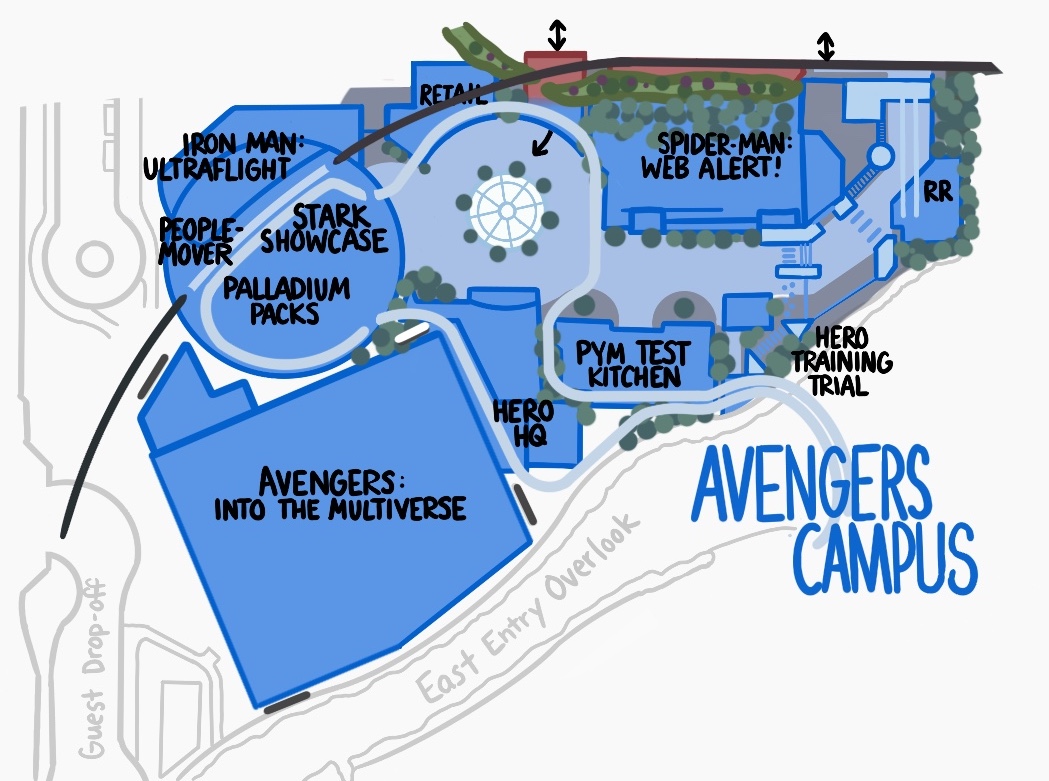
So when it came to my built-out California Adventure and the realistic need to incorporate Marvel, I actually didn’t mind sticking with the Campus concept. It’s actually served well as a grounded, layered, historic, and habitable place, yet a dynamic “flex space” that can feature heroes from across the timeline as promotional needs evolve.
However, I didn’t use the space from “a bug’s land” for it, I didn’t absorb the Twilight Zone Tower of Terror, and I didn’t knock down any (inhabited) Hollywoodland structures. Instead, I envisioned fitting the entire Avengers Campus onto the land that would’ve been made accessible if the Eastern Gateway had happened. (See how that Diversion was needed?!) Weirdly, I think the Campus concept actually works better in this space than it does in its real-life footprint.
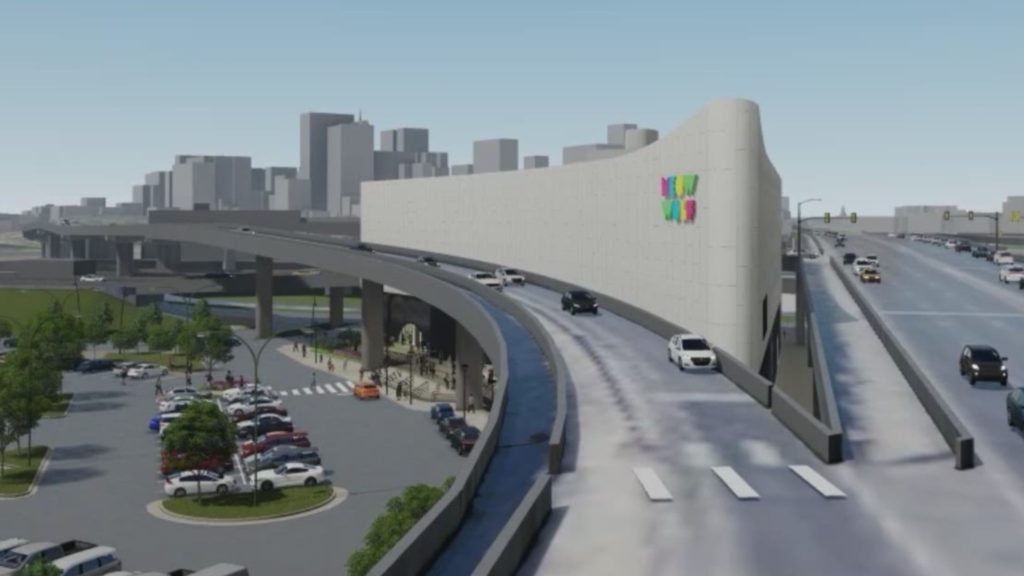
One reason is that as guests would arrive to the resort via the elevated, garden path that slowly descends toward the resort’s Esplanade, I felt that Avengers Campus would actually be a great land for those pedestrians to look down into; a place where it would be okay to “break the fourth wall,” providing guest a glimpse into this training ground from above. California Adventure has been criticized for being constructed without a protective berm to hide the real world beyond, but this is one place where I think views into and out of the park would overlap well.
It sort of feels… epic…? to imagine guests walking a raised path alongside this massive, white showbuilding emblazoned with the Avengers “A” logo (gives me the vibes of Denver’s Meow Wolf, above), then being able to see down into this land where heroes are swinging through the sky and guests are climbing and the Monorail is zooming through… Like if there’s a place to be seen from raised onlookers, this is it. Likewise, being down in Avengers Campus, there’s a cool element to seeing guests not in the park watching you train with the Dora Milaje or something, you know? What an awesome advertisement for upgrading to a Park Hopper!
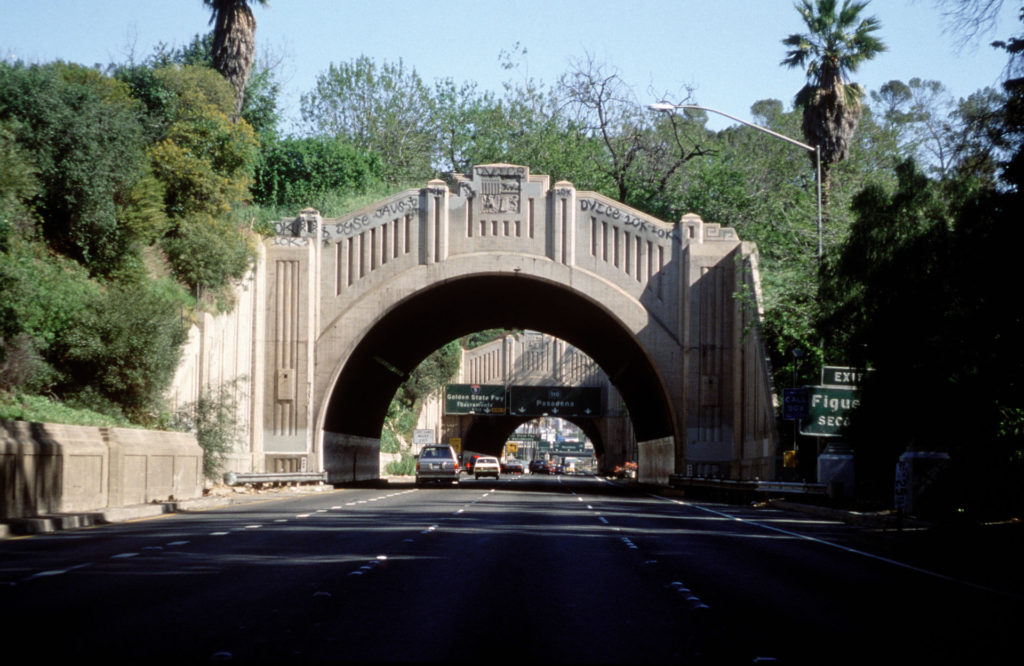
From inside the park, the main entrance into Avengers Campus would of course be from Hollywoodland. There, I pictured a transitionary tunnel “through” the Hollywood Hills, using the Figueroa Tunnel. (You may recognize it as the entrance to Galaxy’s Edge at Hollywood Studios, as well as the launch tunnel of Rock ‘n’ Roller Coaster at the same park.)

Basically, I repurposed one of Hollywood Land’s existing showbuildings to house SPIDER-MAN: WEB ALERT!, which is, of course, the existing Web-Slingers ride. (I’d like to aim higher, but I do recognize that having a no-height-requirement ride in a Marvel land is a must, and that Spider-Man is the hero to carry it.)
This would also be the building to house the Spider-Man Stuntronic, which those Hollywood Hills facades blocking view of the stunt from Hollywoodland. Interestingly, though, it means that Spider-Man could be seen by guests arriving to the resort via the Eastern Gateway, which I think is actually a pretty cool tease that would see pedestrians gathering along the overlook path to try to see in real time.
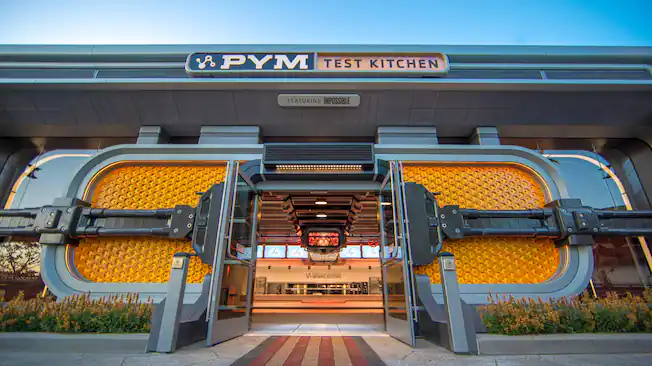
Likewise, I retained the idea of the PYM TEST KITCHEN (a clever way to add “must-try” food to a Marvel land, which otherwise doesn’t bring any particular kind of food or drink to mind). I think a quick service with limited indoor seating and outdoor patios is plenty for this built-out park, so no need (nor room) for the Stark Factory eatery like the Parisian version of Avengers Campus contains.
Since the “story” of Avengers Campus is that it’s a reclaimed Stark Motors manufacturing facility now repurposed as a hero & technology showcase, I added the STARK SHOWCASE – a vaguely-World’s-Fair inspired, small, domed lattice “pavilion,” maybe half the diameter of EPCOT’s Wonders of Life.
In-universe, my thought is that this would’ve been the public-facing exhibition for the public versus the more industrial manufacturing the proving happening in the rest of the facility. Where it might’ve once held displays of Stark Motors’ most ambitious prototypes, this domed pavilion would now contain classic “Marvel” interactives and exhibits on loan to the Campus, like Iron Man’s Hall of Armor or the walkthrough Treasures of Asgard exhibit.

In the center of the pavilion would stand PALLADIUM PACKS. For all its flat rides, California Adventure doesn’t have an equivalent of the Astro Orbitor, which feels like one of those Disney Parks standards. (Magic Kingdom has four.) This would fill that gap, and with a vaguely thrilling twist that I think would be perfect for Avengers Campus.
Modeled after Shanghai Disneyland’s Jet Packs (which are themselves a sort of floorless, thrilling version of the Astro Orbitor), the indoor Palladium Packs adorned with glowing Palladium cores would add kinetic energy, light, and technology to the Stark Showcase.

In the style of EPCOT’s Wonders of Life, I also added concealed showbuilding behind the dome that could house IRON MAN: ULTRAFLIGHT, giving California Adventure a version of Hong Kong Disneyland’s Iron Man Experience simulator. (I provided enough room for a pre-show and three simulator pods, which is one less than Star Tours, but since this ride isn’t serving as the anchor of the land, I think it would be alright.) Speaking of anchor…

When Avengers Campus was formally announced and named in 2019, details about its centerpiece thrill ride were sparse. We knew only that the existing Avengers Headquarters with a Quinjet parked on top would eventually gain a massive white warehouse behind it, and that inside, guests would be flown out to Wakanda to join the Avengers in a battle.
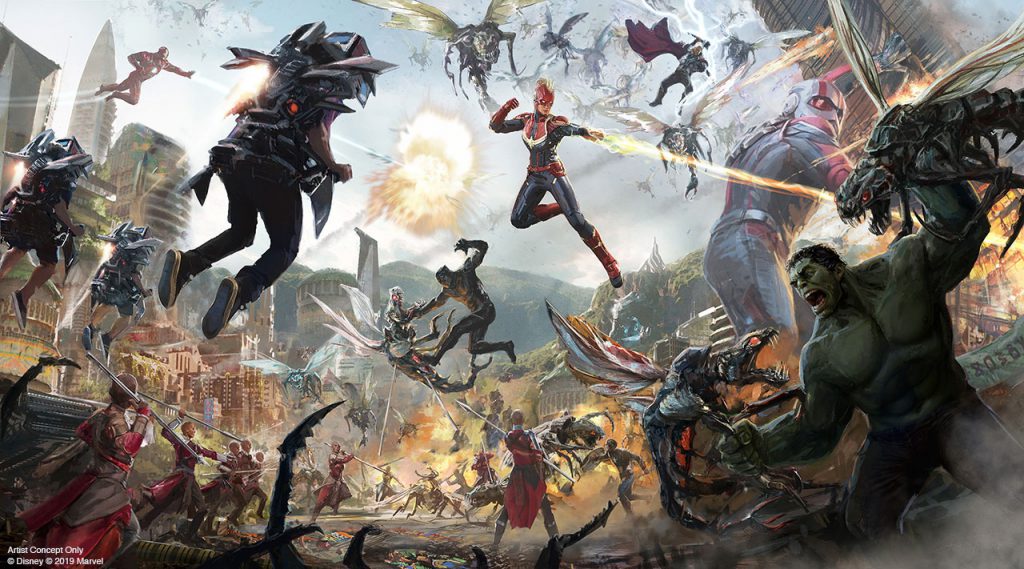
Believed to have been a next-generation evolution of Animal Kingdom’s Flight of Passage mixed with KUKA Robo Arms, the ride would’ve been a jaw-dropper, and would’ve given California Adventure a “U-Ticket” equivalent to Disneyland’s Star Wars: Rise of the Resistance.
Naturally, COVID sidelined the ride, and by the 2022 D23 Expo, it had “evolved” into a new (and doubtlessly, less ambitious & expensive) ride that would be rooted in the MCU’s Multiverse Saga. Ironically, by that time, I’d already published this park plan built around a “U-Ticket” ride called AVENGERS: Into the Multiverse.
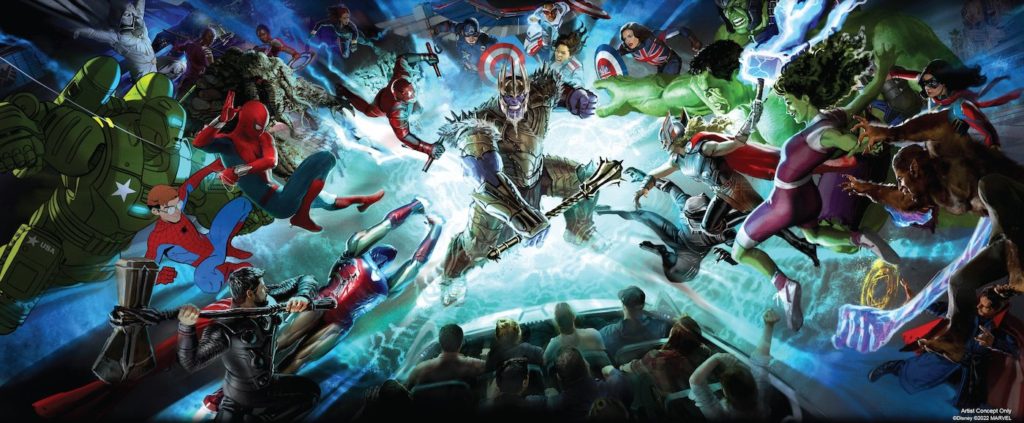
Concept art released at D23 Expo (above) of the forthcoming Multiverse ride at the real California Adventure reveals that the expensive Flight of Passage ride system has clearly been left on the cutting room floor. (Instead, it shows four-across ride vehicles, perhaps akin to a trackless dark ride or Universal’s SCOOP-based Spider-Man ride.) Likewise gone is the insinuation of this being a thrill ride in favor of language explicitly calling it a “family ride.”
Obviously that’s a shame, especially since California Adventure could so use an advanced, immersive thrill ride. So though my ride is indeed a Multiverse ride, it would use the initial individual simulator ride system. How can you beat the idea of KUKA Robo Arms thrusting guests through portals?
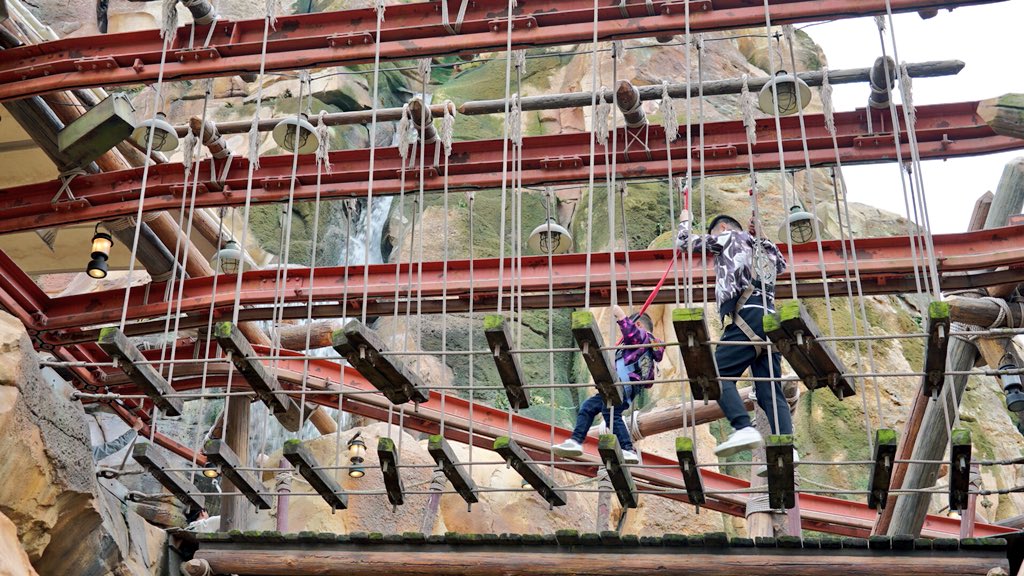
Meanwhile, the very last piece of my built-out Avengers Campus is the HERO TRAINING TRIALS – a high ropes course that would criss-cross the land, with guests passing from rooftop to rooftop by way of balance beams, zip lines, and more.
This isn’t unprecedented – Shanghai Disneyland features a “Discovery Trails” course in its Adventure Isle. Unlikely as it would be to make its way to the lawsuit-happy U.S., the sight of guests scurrying across construction girders, zip lining between rooftops, and leaping through this elevated obstacle course is just too awesome, and too perfect for the land.
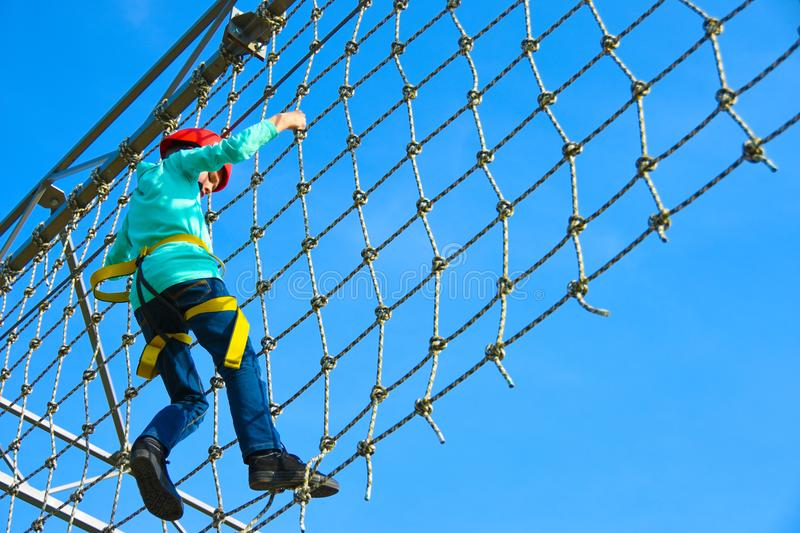
As a sort of “tease” of incredible feats you’re capable of in Avengers Campus, I also wanted a horizontal “spider climb” net to run parallel to the resort’s pedestrian gateway, so entering guests can physically watch as heroes-in-training deftly climb right alongside them.

Anyway, guests could exit Avengers Campus either back through the tunnel toward the Chinese Theater, or around the back of Web Alert and into the Muppets Courtyard. Either way, my idealized, Blue Sky version of California Adventure would then flow from Hollywoodland into the park’s first fully-original space… Read on…
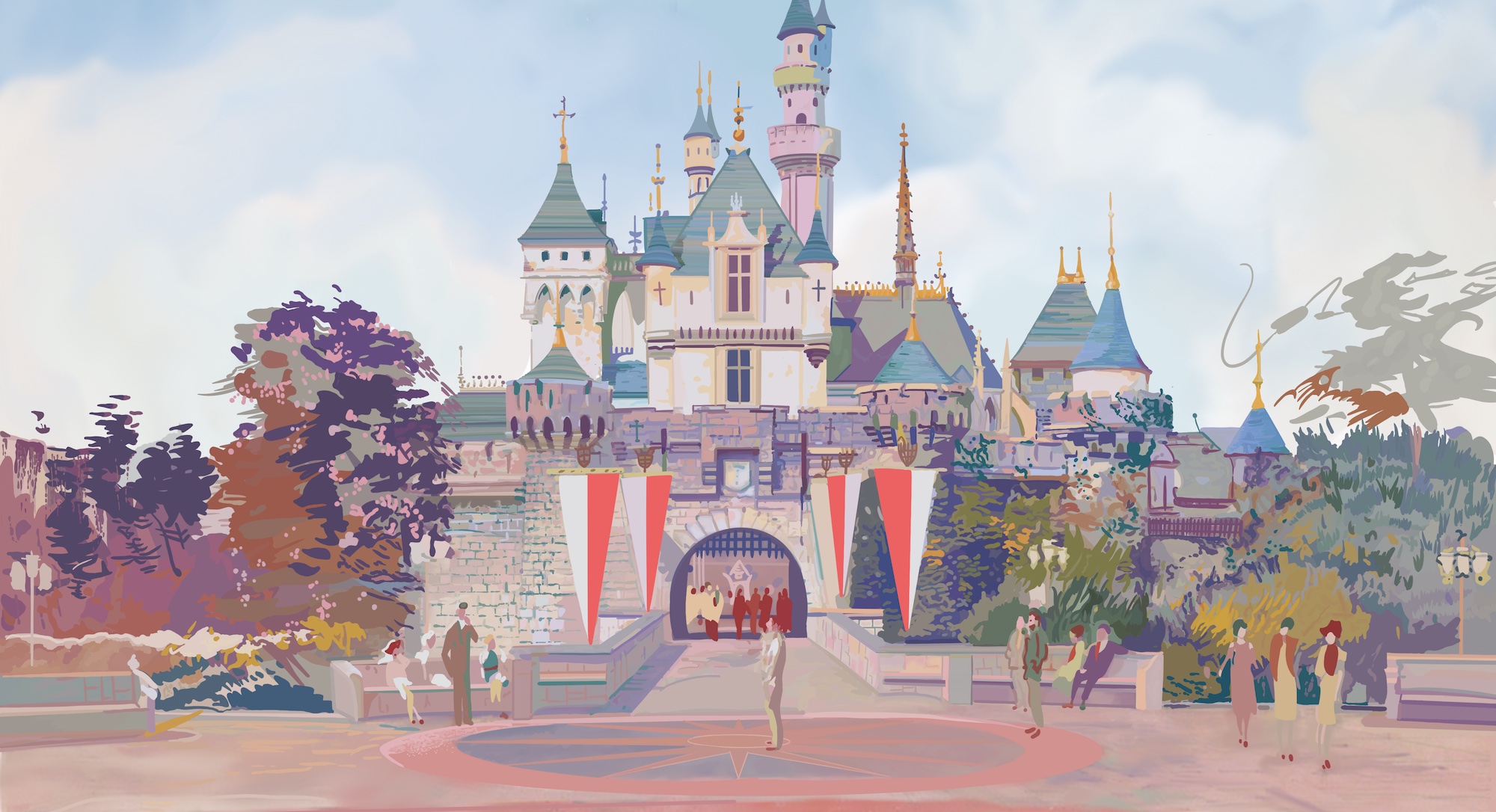


Is Nemo’s Seaskimmers another Aquatopia-styled ride?
Do you ever like to think (in a purely fictional and prideful world) that Disney potentially has some similar ideas to you and then says “oh darn, he used them in his rebuild” so they can’t use them?
For better or worse I don’t think I have a large enough following that anyone from WDI would ever even stumble across my stuff! Hahahah. But that isn’t to say it’s not a cool daydream that someone would say to themselves or to me, “This is great stuff stuff and I would love if we could make it real in the parks just as you’ve drawn it.” But again, I know I’m not actually a professional and that countless real world limitations would stop that from happening every single time! Haha
This is probably my favorite build out as a Disneyland regular. I love the call backs to unused lands like Discovery Bay and the addition of Mystic Manor. Pacific Point gives me a Northern California vibe like close to Oregon area. Can’t wait for your next build out!!
The thing about the 2012 redesign is that, while an idealized California appeals to out-of-towners, it also leans into DL’s identity as a local’s park by giving us places that we cannot visit in real life. I especially love the Carthay Circle restaurant and the Pan Pacific Auditorium gates, because they were torn down before I could ever see them.
Which is a long winded way of saying that the Figueroa tunnel does not belong in California Adventure, because I’ve driven there a hundred times. (To a lesser extent I’m not interested in putting the Chinese Theater in the park, because it’s still there, but I have to admit every time I’ve gone to the Chinese Theater I’ve had fun. Pasadena, however…)